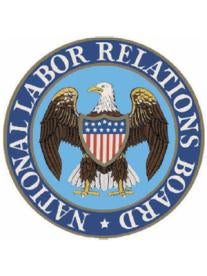In late 2017, the NLRB in Boeing Company, 365 NLRB No. 154 (2017), established a new three category system for classifying various employer policies. The new system was designed to balance a “work rule’s negative impact on employees’ ability to exercise their Section 7 rights and the rule’s connection to employers’ right to maintain discipline and productivity in their workplace.” This balancing analyzes each policy on a case-by-case basis.
In Boeing, the NLRB determined that the employer’s “no-camera” rule was lawful because Boeing had articulated sufficient justifications outweighing the “no-camera” rule’s potential impact on restricting Section 7 rights. These justifications included security protocols necessary to perform classified work for the U.S. government. This holding, could lead an unsuspecting employer to believe that all no recording policies in the workplace will be found lawful under the new Boeingstandard, however, a recent ALJ decision highlights some of the contours of how such test is applied to other no recording policies.
In ADT, LLC and International Brotherhood of Electrical Workers, Locals 46 and 76,19-CA-216379, an ALJ decision issued on July 9, 2019 found that an employer violated the NLRA by terminating two employees who it claimed violated its workplace recording policy. There, the employer (“ADT”) terminated two employees for recording “captive audience meetings” held in the run-up to a decertification election at the employer’s facility. ADT scheduled two such meetings and divided the workforce into two groups for attendance purposes. In advance of the meetings, ADT emailed employees specifying which of the two meetings they were to attend.
Patrick Cuff (“Cuff”), a Union steward, suspected that ADT was intentionally scheduling pro-union employees to attend one meeting and anti-union employees to attend the other and that different content would be shared at the two meetings. Cuff’s request that he and the other shop steward be split up between the two meetings so that they would know what was said at both meetings was denied. Instead, Cuff surreptitiously recorded the meeting he was assigned to on his cell phone. Meanwhile, Mohammed Mansour (“Mansour”), an employee who attended the other meeting, recorded his meeting without management approval. It is important to note that Mansour is dyslexic and speaks English as his second language. Moreover, this was Mansour’s first experience being in a union. Thus, he recorded the meeting in case he wanted to replay what was said so that he could better understand the content.
Several days later, Cuff obtained a copy of Mansour’s recording. Through comparing the two recordings, Cuff confirmed his suspicions about content of the two meetings being different. When ADT found out about the recordings they conducted an investigation, which led to both Cuff and Mansour being terminated.
ADT argued that these two employees were terminated for violating ADT’s workplace recording policy, which in relevant part states that: “Audio or video recording of coworkers or managers is prohibited where (1) such recording occurs without explicit permission from all parties involved in those states with laws prohibiting consensual recording…” The state of Washington, where the employer is located, is a two-party consent state, and the recordings were made without the consent of ADT. However, Washington’s two party consent law only protects private conversations. In considering the Washington statute, the ALJ determined that employer meetings about unionization are not private matters, and that the two employees’ activities were protected under the NLRA because Mansour recorded the meeting so he could learn more about the benefits of a union, and Cuff recorded the meeting in an attempt to counter ADT’s arguments made during the meetings. The ALJ determined that the two employees neither violated ADT policy nor the Washington state statute, and thus, ADT’s termination of the two employees violated the NLRA.
While the Board in Boeing held that a no recording policy can comply with the NLRA under the new test set forth in that case, the ruling in ADT makes clear that employers must not be lulled into thinking that all no recording policies are lawful under the new Boeing standard; and that any discipline issued for putative violations of an unlawful policy may subject the employer to further liability under the Act. Moreover, the case makes clear that an employer may not necessarily be able to rely on a state’s one or two party consent statute as a defense. While ADT is not a decision from the NLRB, the ruling in ADT provides a helpful reminder to employers who have or are interested in having a no recording policy that such policies should be reviewed with labor counsel to determine whether they comply with the Act.



 i
i

